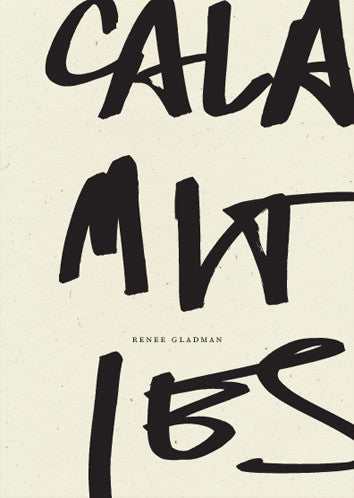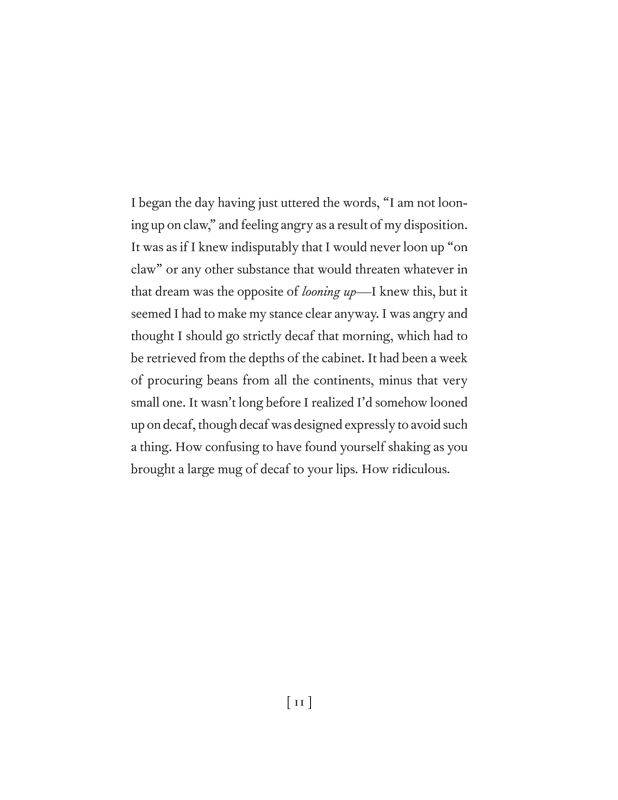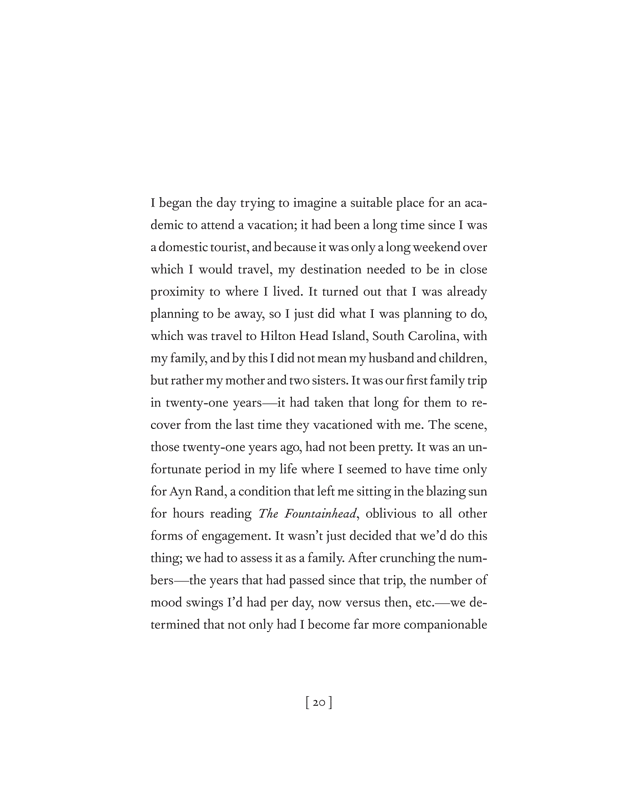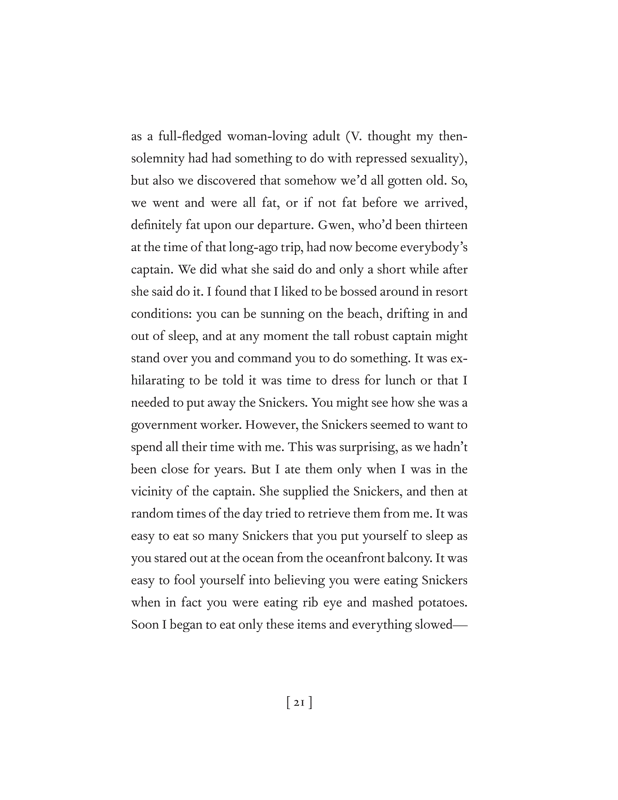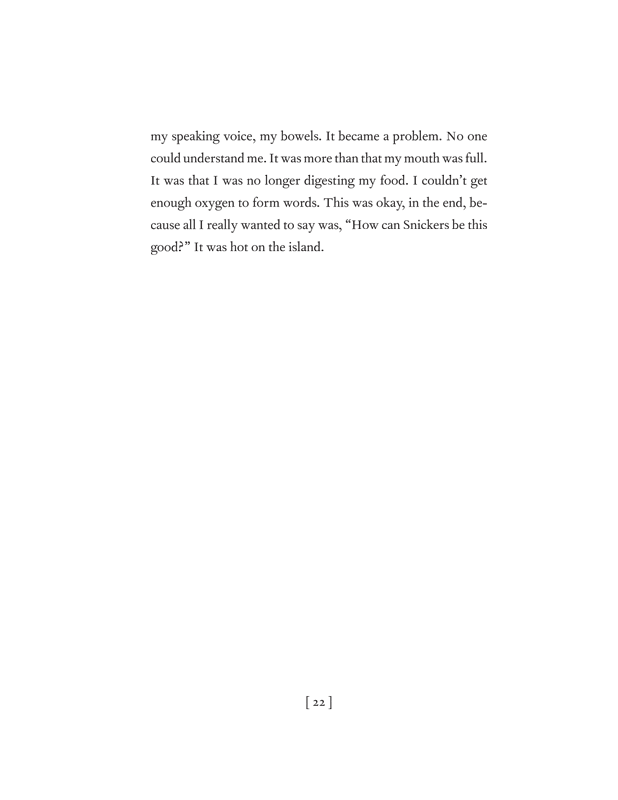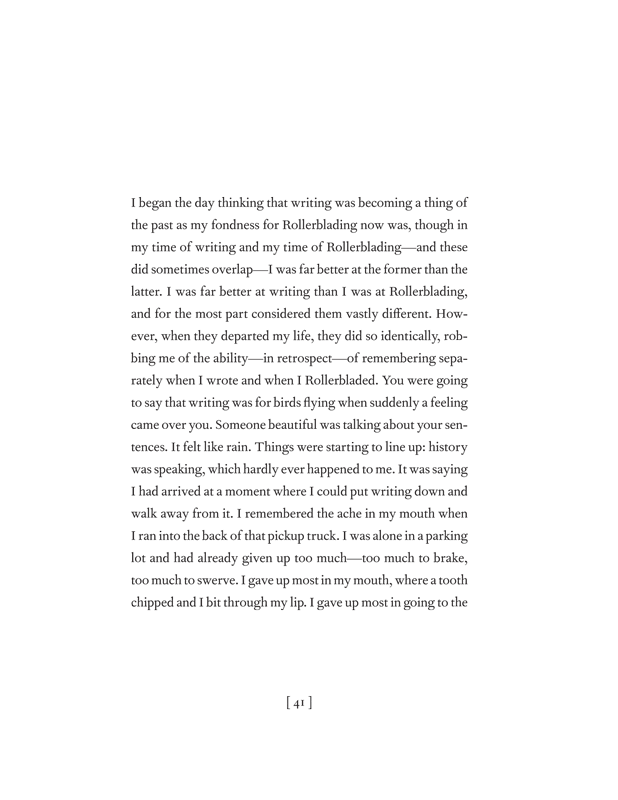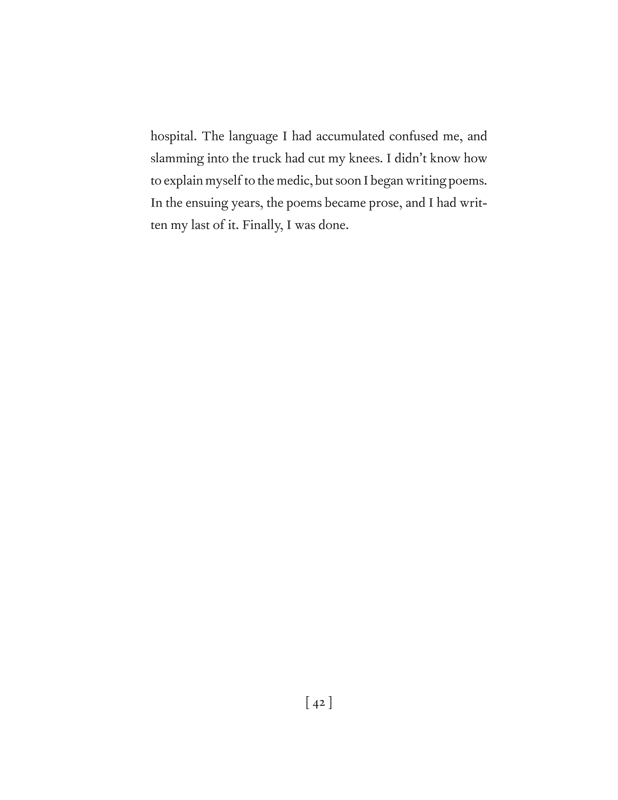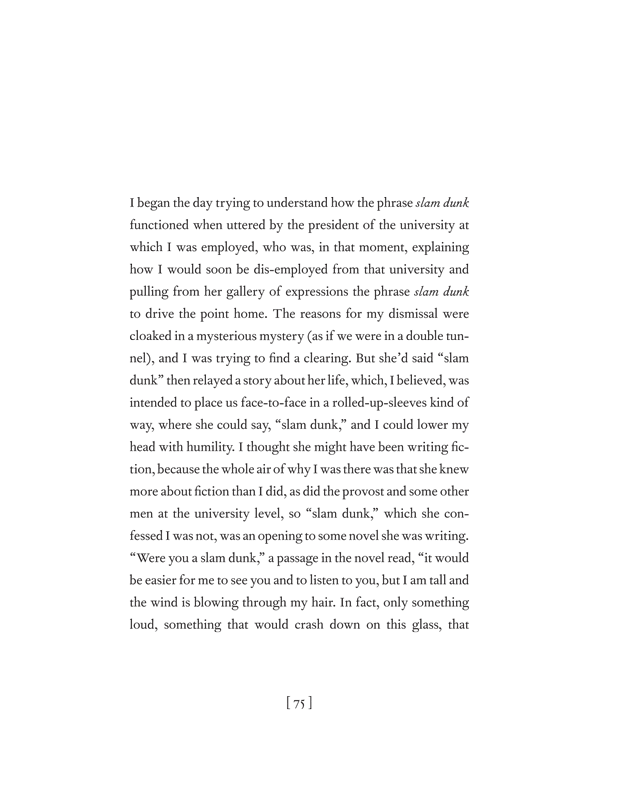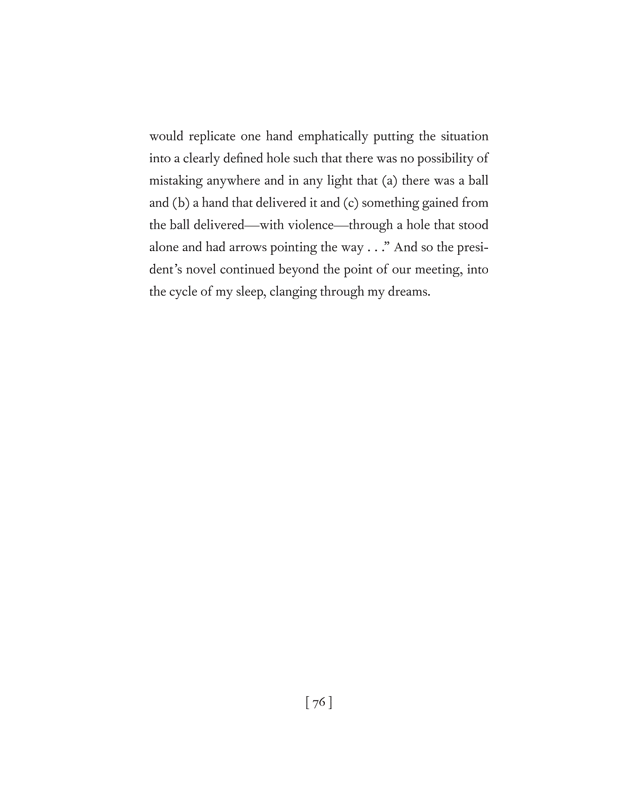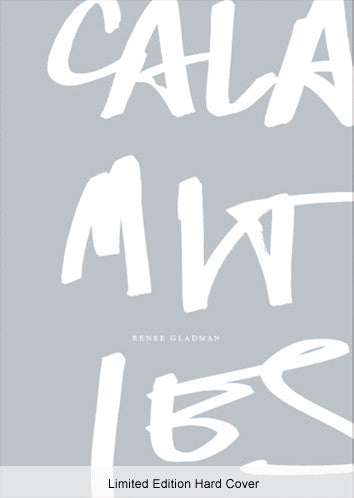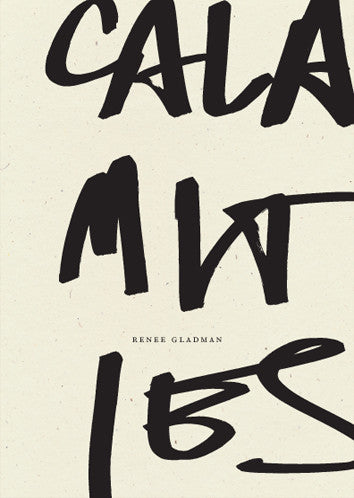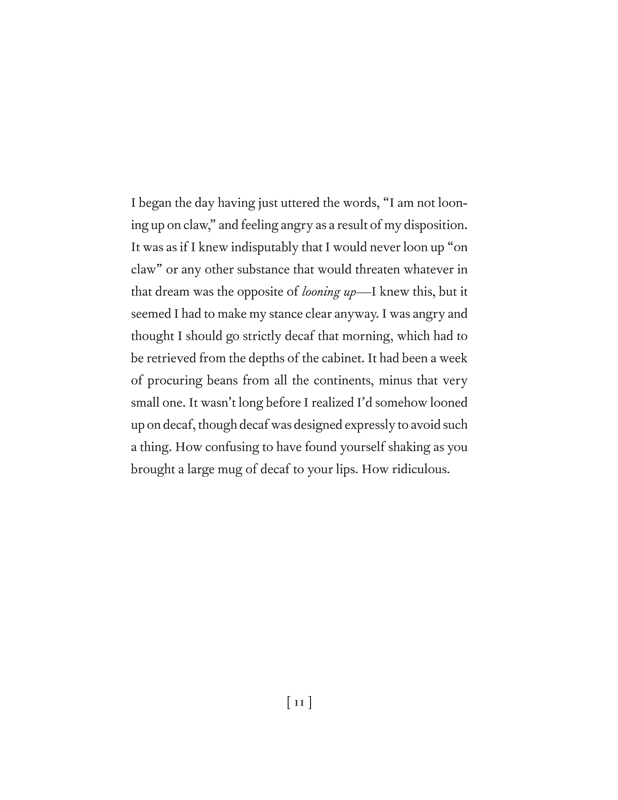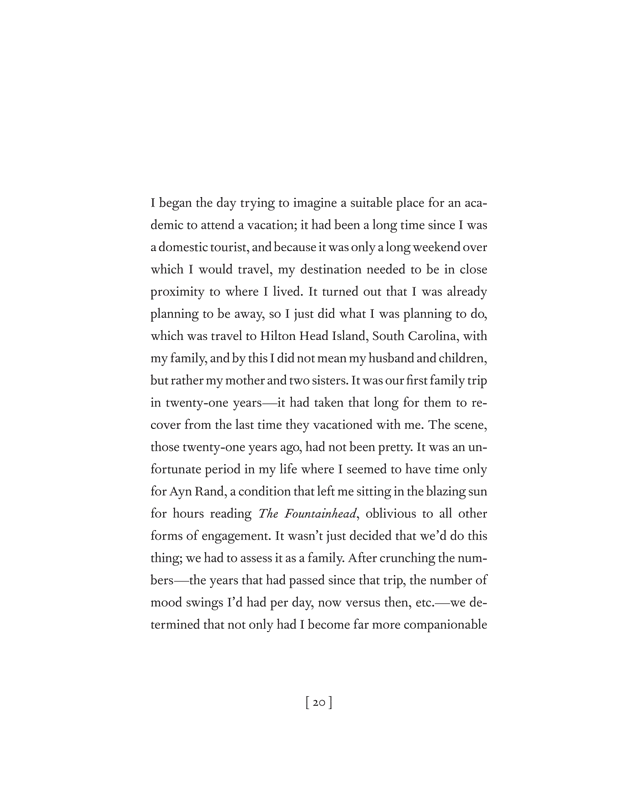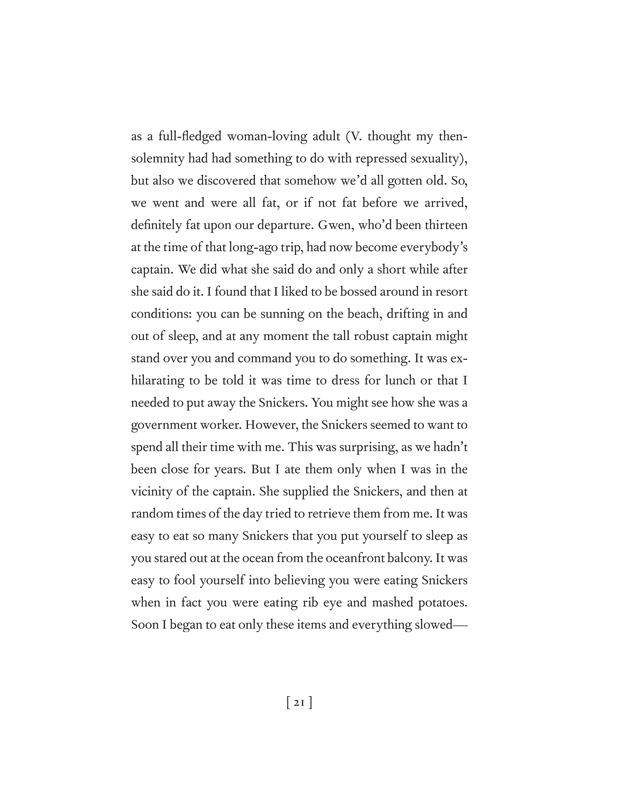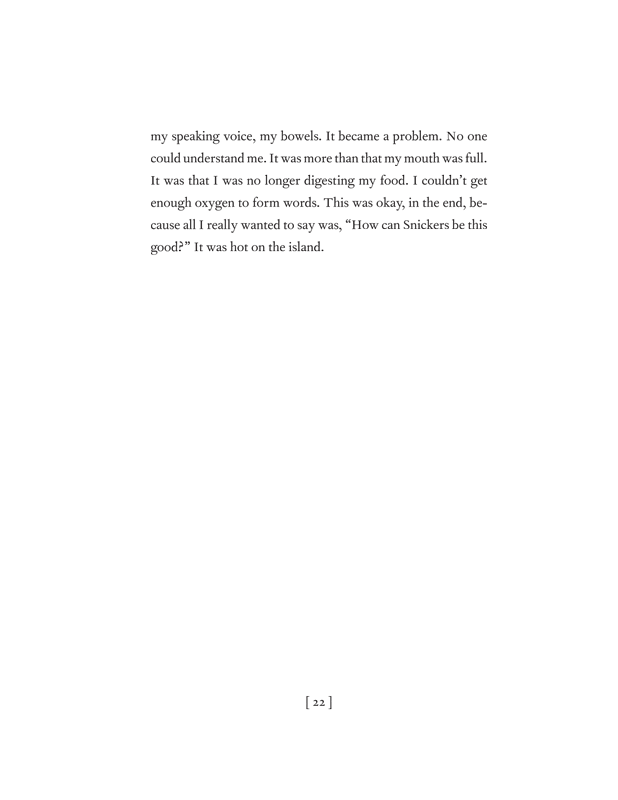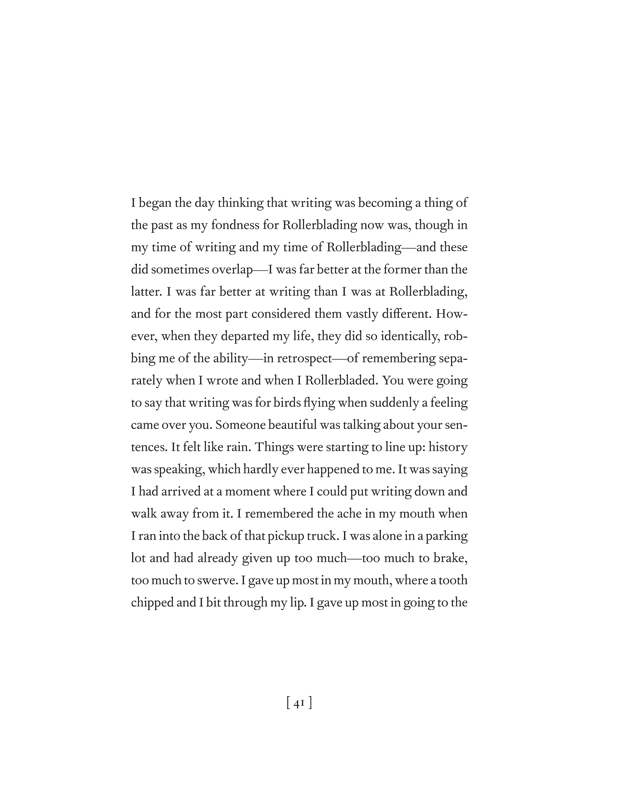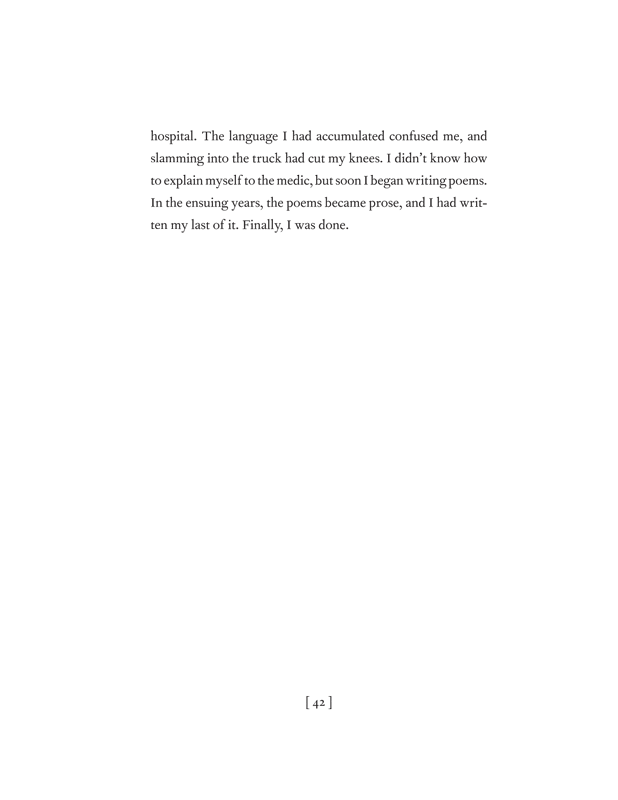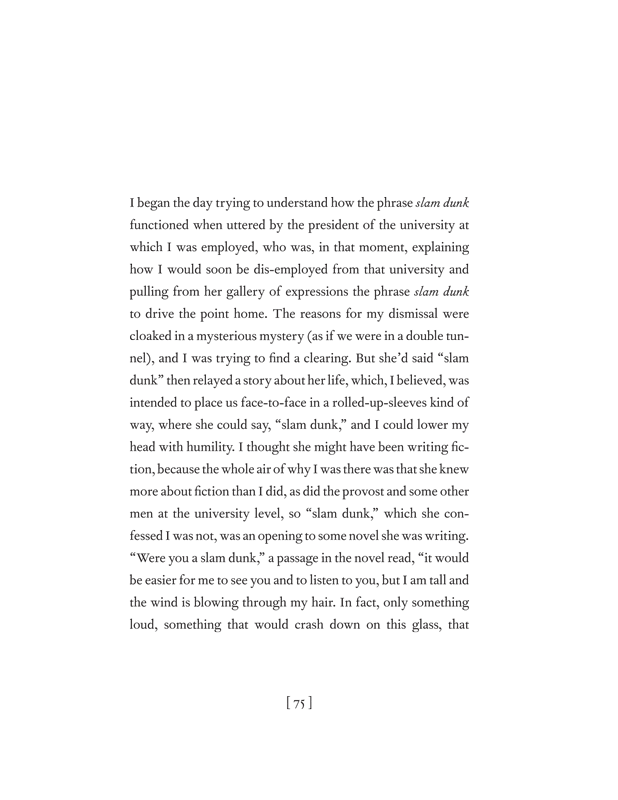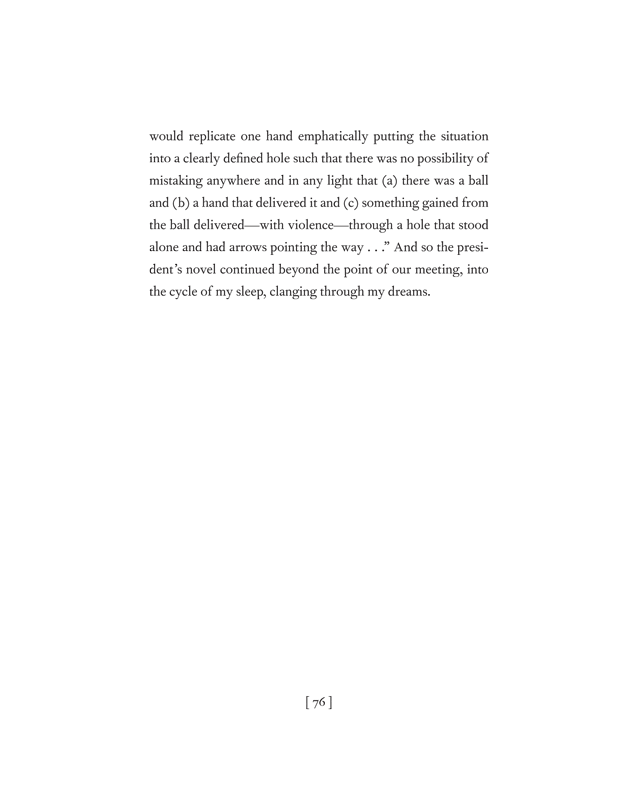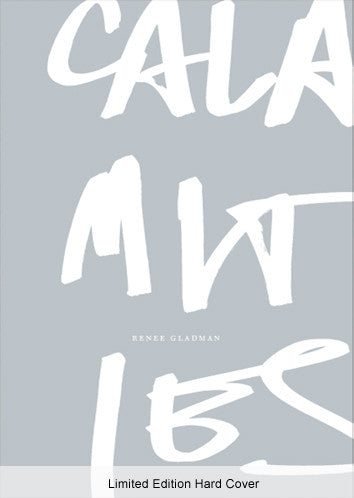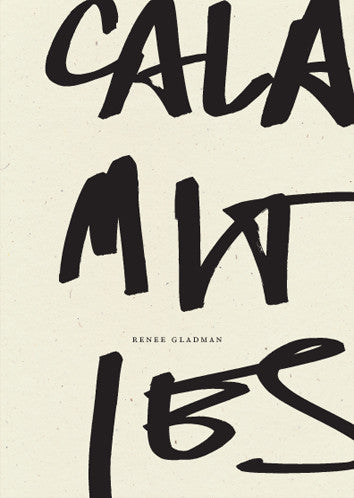
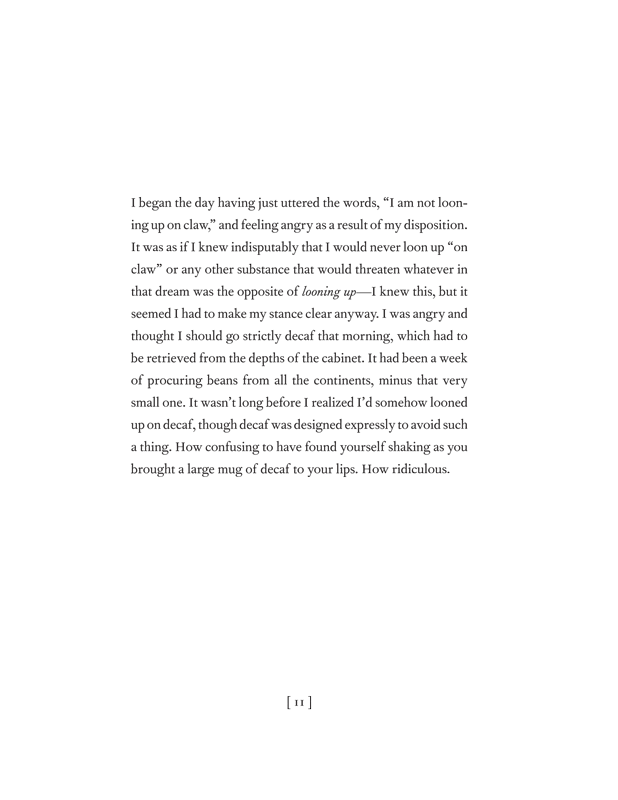
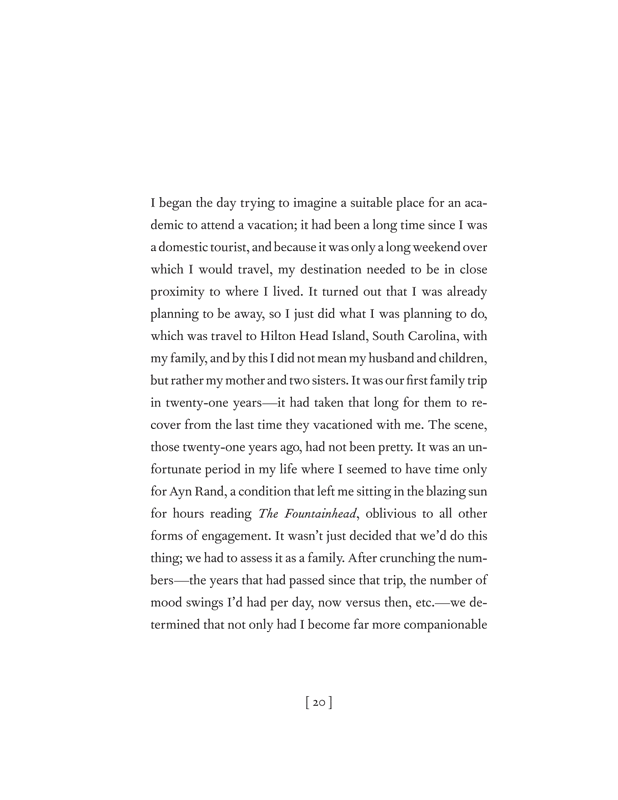
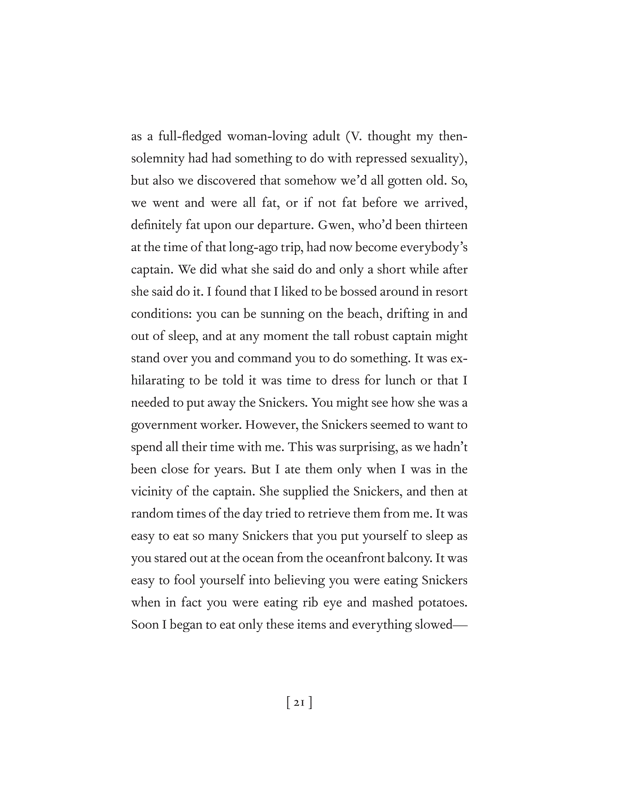
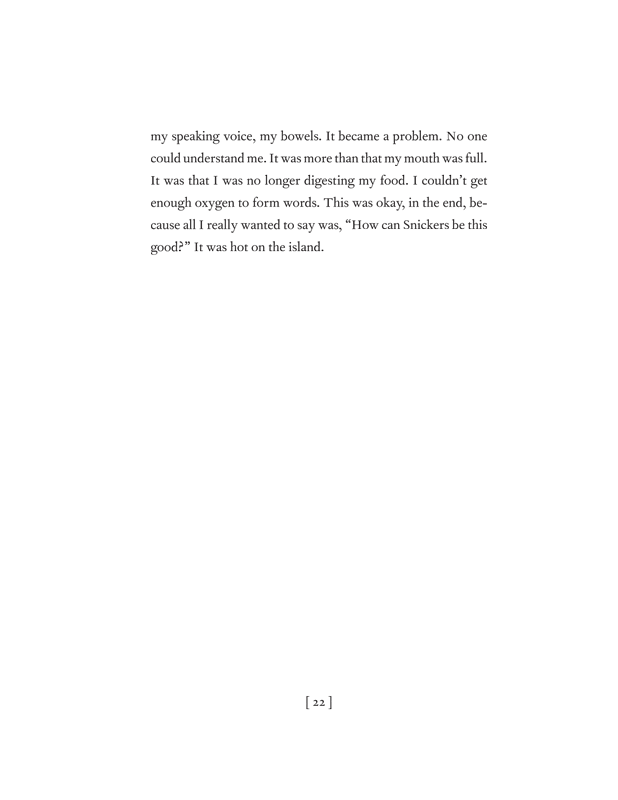
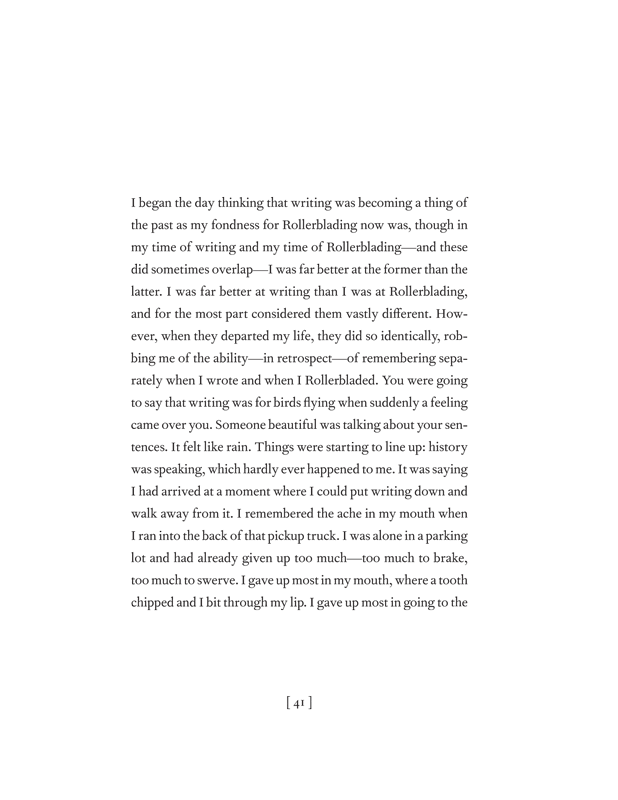
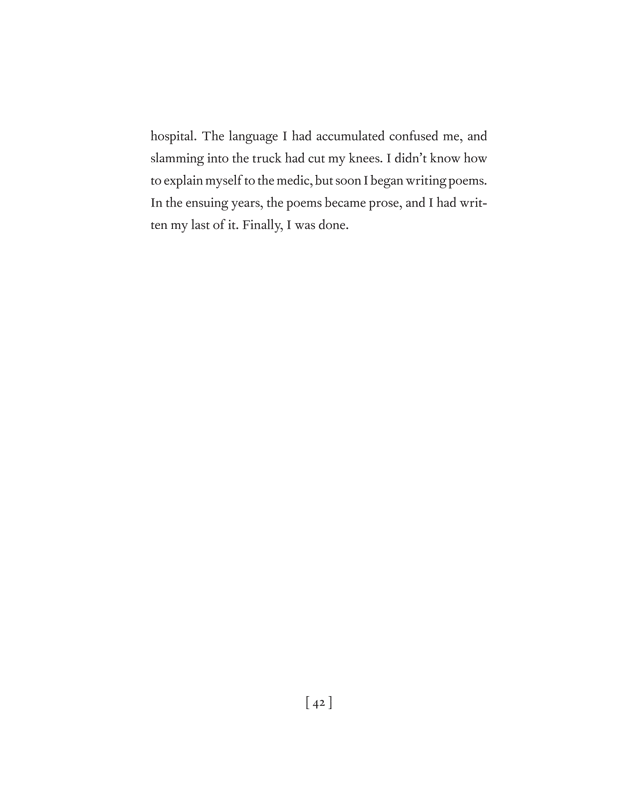
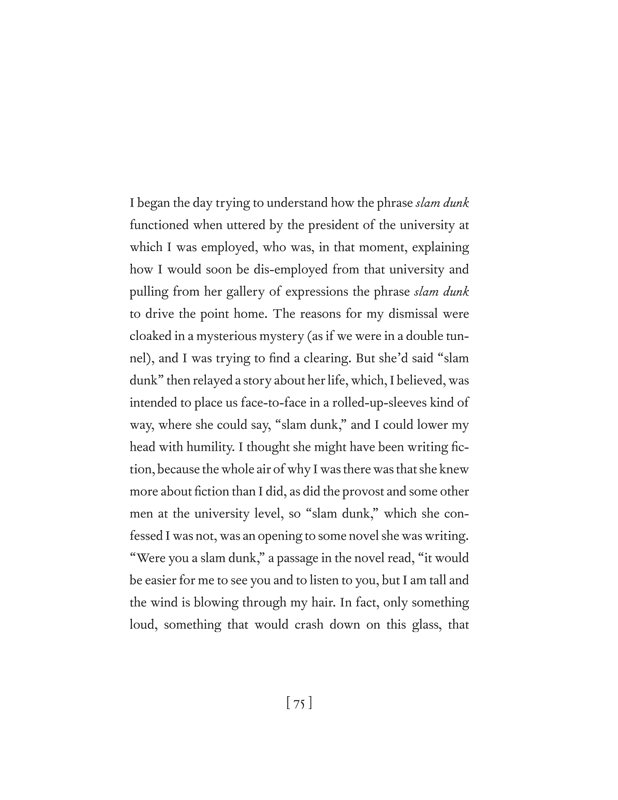
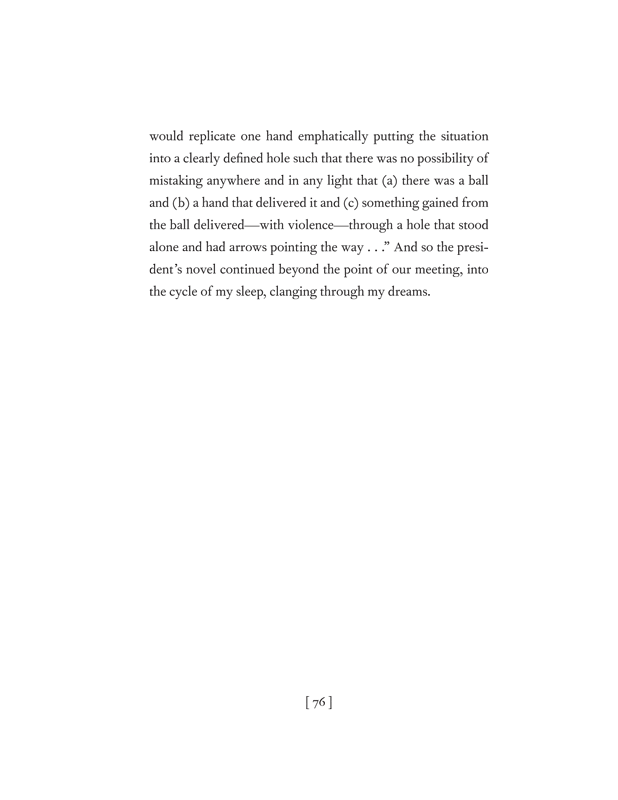
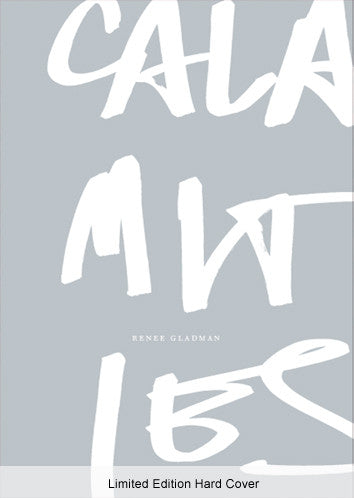
Calamities
Calamities
-
WINNER of the 2017 Firecracker Award for Nonfiction from the Community of Literary Magazines and Presses (CLMP)
A collection of linked essays concerned with the life and mind of the writer by one of the most original voices in contemporary literature. Each essay takes a day as its point of inquiry, observing the body as it moves through time, architecture, and space, gradually demanding a new logic and level of consciousness from the narrator and reader. -
Through this sharp, dense, and utterly rewarding book, Gladman manages to achieve an impossible balance between the intellectual rigor of an academic, the linguistic sensibility of a poet, and the probing logical fantasy of a visual artist. It’s appropriate that Calamities would enact this sort of intersection of identities—that it would shift tectonically between them, shimmering all the while. A must-read for creators of all shapes, or even better those creators who shift shapes, who name in a number of languages, who can’t think of themselves as any one thing—so in that way, a book for everyone.
Trevor Ketner, Kenyon ReviewOf course, Gladman’s work can be counted on to live up to even the most handsome of book jackets. Billed as a book of essays, Calamities enters that exciting, genre-neutral territory between prose and poetry. The pieces are captivating in their humanness; Gladman captures the serpentine path neuroses travel through her consciousness.
Lauren Kane, Paris ReviewReading Calamities is incantational. The reading experience is one drenched in the constant feeling of ignition and obstruction. Calamities at once demands and inhibits; it solicits and perturbs. It frustrates and tickles. And it reminds us, most forcefully, that narrative is erotically phenomenological.
Prathna Lor, Jacket2Gladman pushes up against the boundaries of narrative while nestling comfortably within it. Her prose is vivid, meandering, and acute. . . . The book is a welcome addition to the tradition of experimental literature exploring the boundaries of genre, identity, and artistic expression.
Publishers WeeklyA standalone masterpiece. . . . Reading Gladman, I sometimes feel I’m watching a mastermind manipulate a Rubik’s Cube, except the goal isn’t to solve it but to present every possible arrangement.
Ben Purkert, The RumpusGentle prying leads to memorable phrases, ballooning images, and twisty thoughts that take us deep into the syntax of calamity.
Jenn Mar, Rain TaxiGladman obsesses and opens new airways at the levels of sentence, story, essay, sequence, model, and of discrete words that draw themselves through the thickness and unexpectedness of their phonemes…each essay is a fragment, a new beginning, discontinuous from its neighbors but in conversation with them…each transformation is a calamity, unresolved but pointing to further possibilities.
Sam Lohmann, The VoltaRenee Gladman’s fiction defies easy categorization […] Here, Gladman turns her eye to the essay, focusing on questions of bodies and time.
Vol. 1 BrooklynRenee Gladman is one of the great hybridizers of contemporary letters. Calamities draws us into its own looking-glass world of language and time, the spaces of life happening and not happening all at once, and Gladman balances everything gracefully atop her sparse, nearly ambient prose. So rarely can syntax catch the heart off guard.
Jarrod Annis, Literary HubWithin this book is a new way to contemplate, investigate, and map the mind and the surrounding space, internally and externally, as one writes about writing, speaks about writing, and about the relationships, cross-overs, and shape shifts from film to drawing to words to people.
Lauren Wallach, Book CourtGladman’s wonders— brilliant and self-aware even when materializing just beyond her reach— on the mechanics and experience of writing through objects that are at once foreign and intimately felt, compose her narrative movement: her deepening into a set of reflective postures, a singular cartography that both models (and creates space for) storymaking we have not yet been equipped to recognize.
The Poetry ProjectThe thing she is telling you how to make is pure imagination, it is not something you would or could bring to life—but you can wear it by reading her essays. These sketches inevitably twist and tumble into a beautiful knot of failed effort. And the failure is, somehow, the beginning. A premise for the next creative act.
Aisha Sabatini Sloan, Tarpaulin SkyThe style of these essays, all of them short, is so impressionistic that it's probably safe to call these works "essay-poems" instead of essays proper…a minimalism so austere that the reader is often left to draw their own connections between events and feelings…it's a great writer-on-writing book, but it's an even better communicator-on-communication book, and that's really the key to it…
Chris Schahfer, Chicago Center for Literature and PhotographyThis collection of essays — or possibly prose poems — gives shape to the act of creation for the artist-as-writer or writer-as-artist. Always experimental, but never exclusionary, Renee Gladman’s writing is open, reflective, and sublime. I wanted to read “Calamities” as soon as I woke up and I wanted it to sing me to sleep at the end of the day. Gladman is my dream writer.
Mary Thompson, Brooklyn PaperA word, once written, calls for more words. This additive/corrective/amendatory process is the draw of writing. In her new book of essays, Calamities, Renee Gladman lays bare these paradoxes at the heart of writing…
Universal Hubbub
Publication Date: September 6, 2016
ISBN# 9781940696270 (5.5x8 144pp, paperback)
ISBN# 9781940696287 (5.5x8 144pp, limited edition hardcover)
ISBN# 9781950268283 (e-book*)
Couldn't load pickup availability
